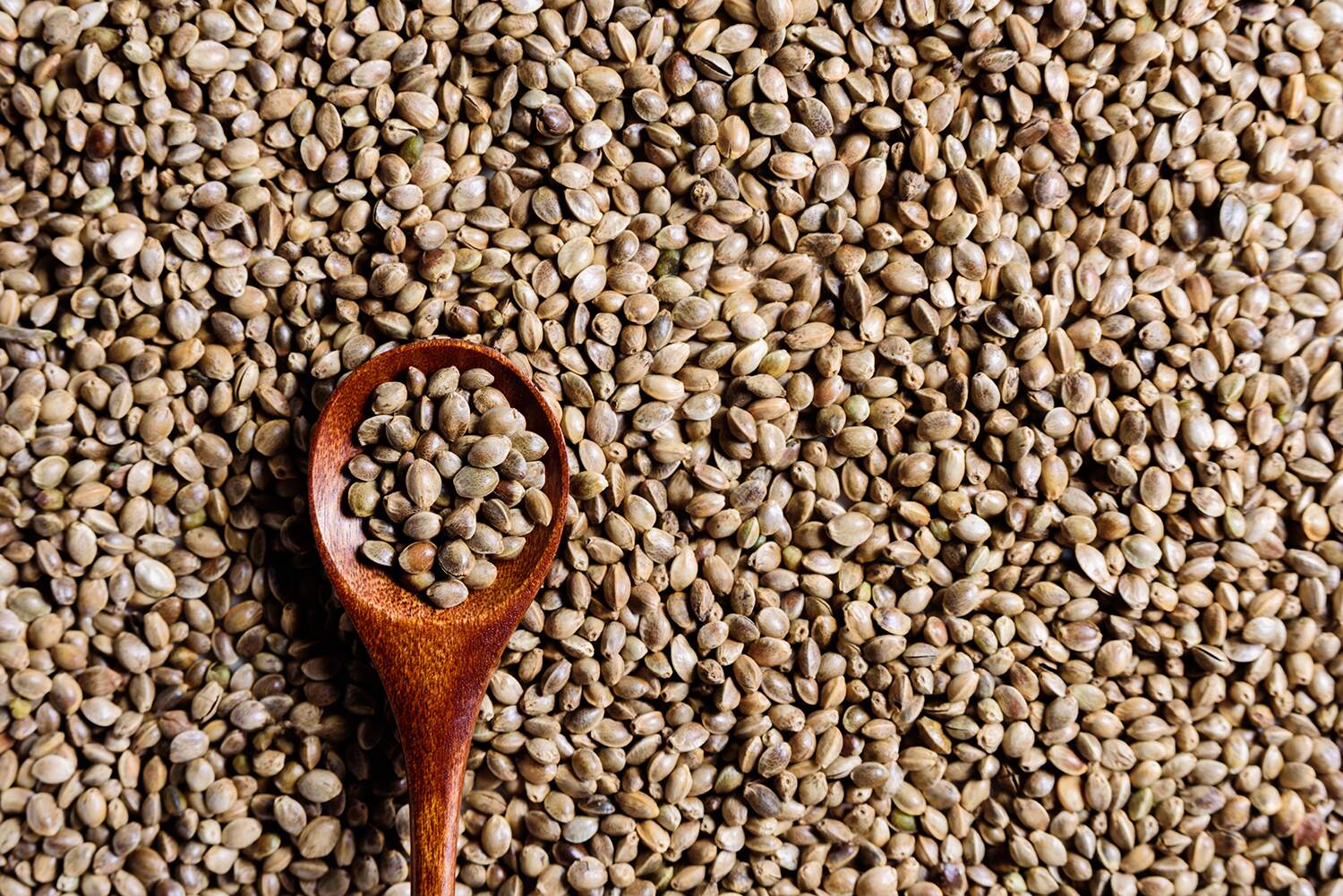
Protein is an essential macronutrient for our sustenance. For proper growth, metabolism, and health, we all require adequate protein. We can acquire protein from animal and plant sources, but which is better? It’s still a debatable topic! Nowadays, plant-based proteins are gaining momentum in the market due to their remarkable health benefits and ethical reasons.
Plant-based proteins are sustainable and environmentally friendly too. This article will be dealing with hemp protein, one of the most popular plant-based proteins and superfood powder. Let’s see how hemp protein lives up to its moniker of “ the best plant-based protein.”
A quick rundown of Hemp protein
Hemp protein is obtained from the Hemp plant's seeds, also known as the cannabis plant. Yup! The one from which marijuana is sourced. But no, hemp seeds don’t have a significant amount of THC or tetrahydrocannabinol. THC is the prime compound responsible for the psychological effects of marijuana, made from dried leaves and flowers of the same plant.
This superfood powder has the presence of all nine essential amino acids in adequate quantities. The quality of Hemp protein is proven to be similar to egg whites and soy, which means it's an excellent source of highly bioavailable protein. It has a considerable amount of dietary fiber, essential fatty acids, minerals, and vitamins. Unlike other sources of plant protein, hemp seeds require minimal processing. For obtaining Hemp protein powder, just press the seeds and grind them. This is another bonus of hemp protein.
What research says about Hemp protein’s benefits
1. Great protein source
As just said earlier, Hemp protein has all the nine essential amino acids, which makes it a complete protein source. It has a higher proportion of sulfur-containing amino acids like methionine and cysteine. Also, the ratio of essential amino acids to total amino acids of hemp protein is better than soy, making it nutritionally superior to soy protein. The digestibility of hemp protein is also good. This makes Hemp protein an excellent source of high-quality protein for our body. It also enhances the bioavailability of zinc.
2. Excellent antioxidant properties
Hemp protein hydrolysates have significant free radical scavenging activity. Free radicals are harmful molecules generated in our bodies during metabolism that will cause oxidative damage in our bodies if they exceed a certain amount. In the long run, oxidative damage can cause serious ailments. The antioxidant properties of Hemp protein can be attributed to its potential to up-regulate the defense system induced by antioxidant enzymes, such as catalase, superoxide dismutase, and plasma total antioxidant capacity.
3. Antihypertensive effects
This is another hemp protein benefit. The potential of hydrophobic, branched-chain, and aromatic residues of amino acids in Hemp protein, inhibits ACE (Angiotensin-converting enzyme) and renin, both responsible for high blood pressure. This helps with hypertension. Studies have shown hemp protein to decrease systolic and overall elevated blood pressure.
4. Hypocholesterolemic effects
This superfood powder has similar cholesterol-lowering effects as Statin, a medicine prescribed for high cholesterol. It helps lower the production of endogenous cholesterol by inhibiting prime enzymes involved, and it also reduces the level of cholesterol absorption in the gut.
5. Neuroprotective properties
Studies have shown hemp protein to exhibit strong anti-inflammatory properties by upregulating specific genes. It can also inhibit the enzyme acetylcholinesterase, thus helping to promote the levels of choline, a neurotransmitter in our bodies. This action is especially beneficial in alleviating ailments like Alzheimer’s disease.
6. Hypoglycemic effects
Hemp proteins have been noticed to have inhibitory effects on alpha-glucosidase, a prime enzyme responsible for carbohydrate digestion. It also suppresses enzymes that stimulate insulin production. Overall, these activities result in significant hypoglycemic effects.
7. Good for cardiovascular health
Another Hemp protein benefit is its cardioprotective effects. It has high levels of aspartic acid, glutamic acid, and arginine, whereas low levels of lysine. The arginine ratio to lysine is much higher in Hemp protein than that of other good quality proteins like soy and hemp. Why is this significant? Because the higher the arginine/lysine ratio, the greater is its anticholesteremic, antiatherogenic, and overall cardioprotective effects.
How to use it?
You can have 30 grams or three tablespoons of hemp protein powder daily. It blends well with yogurt, smoothies, and shakes. Have it regularly to get maximum benefits. If you are using the seeds, just add them to your salads or drinks.
Do they have any side effects?
No side effects have been noted in the consumption of Hemp protein powder. But one thing to remember is to get your hemp protein powder from a well-reputed company because cheap Hemp protein powders can be contaminated with THC due to improper sourcing or processing. Also, the FDA does not regulate nutritional supplements, so always go for a well-trusted brand.
Sometimes, high quantities of Hemp protein powder consumption can cause stomach upset, bloating, gas and diarrhea. This might be due to high fiber in it or an unusually high supply of protein in the body, increasing nitrogen levels in the blood. Remember, before starting any new supplements, it is always better to have a word with a health professional.
So there we have it. The best plant-based protein? Yes, indeed it is! Are you planning to switch your regular protein powder with Hemp protein? Comment below.
